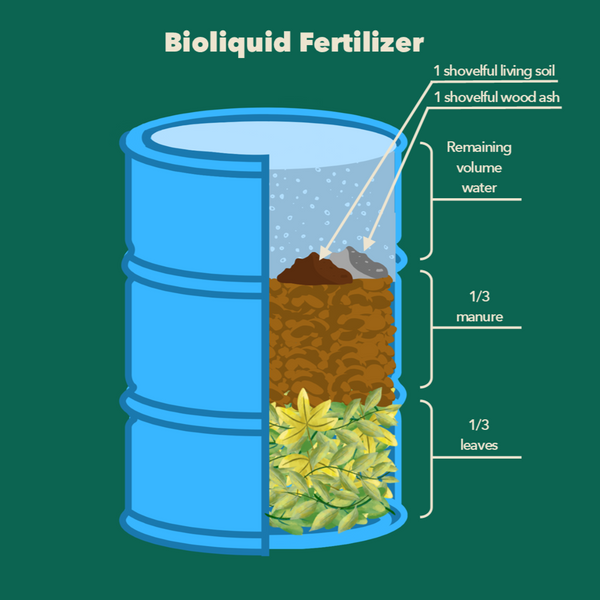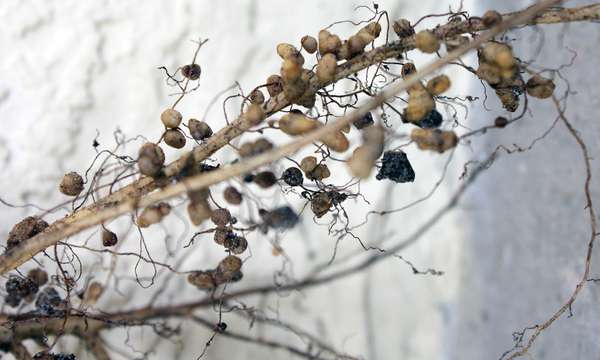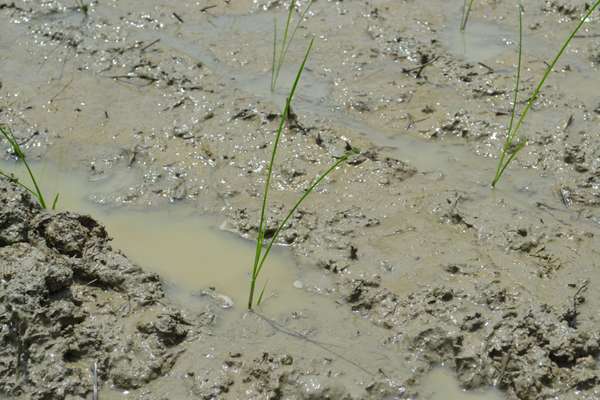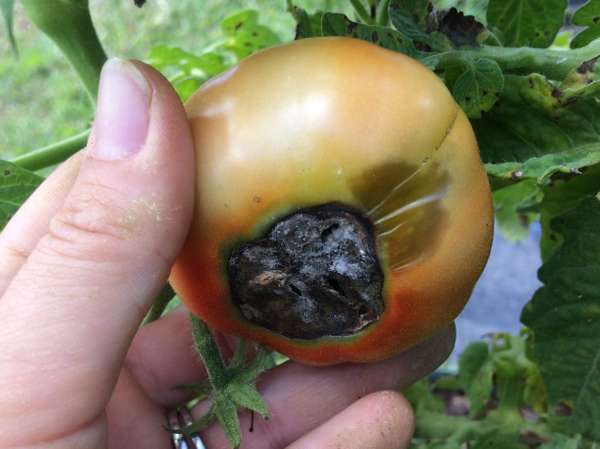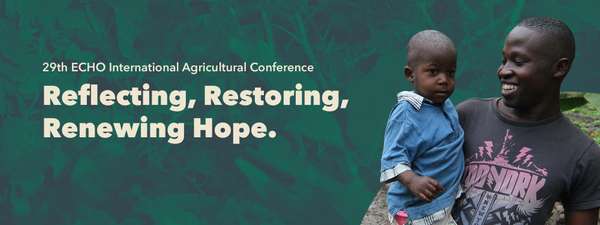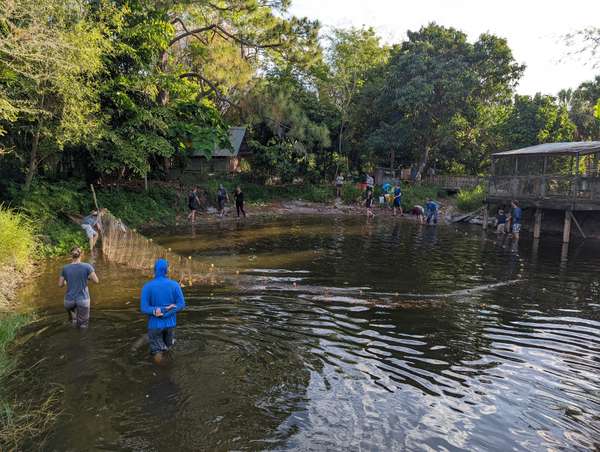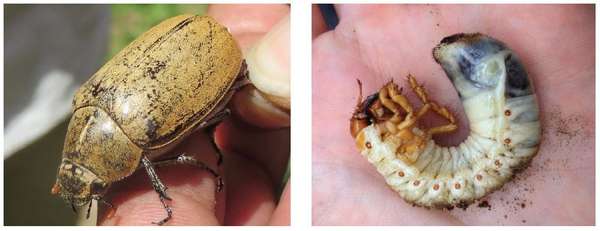ECHOcommunity Updates
Bioliquid Fertilizer Update 2022-08-02
Bioliquid fertilizer (BLF; also known as organic liquid fertilizer) has become popular with ECHO’s network and smallholder farmers around the world. ECHO West Africa introduces and instructs on how to prepare this amendment in ECHO West Africa Note 1 (Sié Kansié, 2017). In March 2022, we made BLF as outlined by Sié Kansié, 2017 with the utilization of pigeon manure and the new growth (leaves and stems) of Mexican sunflower (Tithonia diversifolia). See some of our preliminary results and share your experience with bioliquid fertilizer on ECHO Conversations today! A more in-depth analysis of this natural fertilizer will be shared in October's issue of ECHO Development Notes.
Join the Conversation: Root contributions to soil health 2022-07-26
An ongoing ECHO Conversation has been happening around the contributions of plant roots to soil organic matter, soil life, and overall health of the soil. Questions discussed include when root benefits are observed in the soil, how much biomass can be contributed by annuals vs. perennials, and how management practices might influence root biomass contributions to soil health. Do you have experience to share? Questions needing answered?
Announcing ECHO's New President/CEO: Abram Bicksler 2022-07-19
Bicksler has more than 15 years of international experience, including five years of experience as Director of ECHO’s Asia Regional Impact Center from 2013-2018. Most recently, Bicksler has served as Agricultural Officer in agroecology at the Food and Agriculture Organization of the United Nations (FAO) in Rome, Italy. While at FAO, Bicksler guided agroecology and sustainable food systems initiatives in multiple regions of the world. David Erickson, who has served as President/CEO for the last seven of his 12 years at ECHO, will continue leading through August, 2022. Dr. Abram Bicksler will be joining ECHO in early September.
Bicksler earned his Doctorate and Master’s degrees from the University of Illinois Urbana-Champaign in Natural Resources and Environmental Sciences with a focus on sustainable cropping systems and completed his Bachelor’s degree at Taylor University in Environmental Science and Biology. As a leader and researcher, Dr. Bicksler has been published in a number of journals including: Experimental Agriculture; Agronomy for Sustainable Development; Frontiers in Sustainable Food Systems; the Journal of International Agricultural and Extension Education; Ecosystems and People; the International Journal of Development Research; and, the Journal of Agriculture, Food Systems, and Community Development, in addition to contributing to a number of FAO publications.
At this year's ECHO International Agriculture Conference, Bicksler will be a featured speaker.
From ECHO's Interns 2022-07-05
Beginning in early June, ECHO Florida interns have been studying agronomic crops. Shealyn Otto and Sammie Brittain are two interns who’ve been applying their knowledge on the farm, learning about rice. Using the 'Diamond' variety of rice, along with the System of Rice Intensification (SRI) method, these interns are experiencing hands-on learning.
The planting process has taken two weeks, while harvest won’t be until late October-early November. To begin the SRI method, the interns soak the seeds for 24 hours, then plant them into a seedling bed and water them three times a day. The growth process of the seedlings ranges from eight to fifteen days before they are ready to be transplanted. While this process takes place, the pigs of ECHO’s farm eat away at the weeds of the rice paddy. The interns then extract what is left to prepare the paddy for planting. This June, the interns planted around 60 grams of rice.
“It’s been interesting because the research makes it feel like everything has to be measured and perfect, when in reality the process is a lot more flexible,” Shealyn Otto.
“This process has given me a greater appreciation of that cup of rice I have for dinner, knowing how much work went into it,” Sammie Brittain said.
The interns will present their findings to their instructors Stacy Swartz, Andy Cotarelo, and fellow interns in September. The interns notice the benefits of using the SRI method of planting versus the traditional method, as they see the potential of higher yield for farmers globally. SRI requires less seed, pesticides, and herbicides and only needs to be flooded once a week. Experimenting with SRI allows interns at ECHO to discover methods that can benefit farmers globally.
“We have the opportunity to do experiments at ECHO that other farmers may be unable to because growing rice is their livelihood,'' Sammie Brittain said. “We can then send the research from our experiments to those same farmers.”
To learn more about the SRI method and its potential benefits, here is a link with more information. SRI, the System of Rice Intensification: Less Can be More
EDN #156 Now Available 2022-07-01
In this issue:
- Extending Postharvest Life of Fresh Fruit: Harvest for Quality
- Chicken Compost System
- Echoes from our Network: Microcontroller use
- From ECHO's Seed Bank: Allium cepa ‘Awahia’ A Short-Day Onion Option
- Books, Websites, and Other Resources: Discount on Roland Bunch's Second Edition of "Restoring the Soil"
Extending Postharvest Life of Fresh Fruit
Harvest for Quality
Tim Motis
Excerpt:
Papaya fruit have thin skin susceptible to abrasions and punctures. Skin injuries lead to green blemishes (that remain when the fruit is ripe), weight loss, and disease infection (Quintana and Paull, 1993; Sugano et al., 2013). A poster by Sugano et al. (2013) illustrates the following techniques to minimize papaya fruit damage:
- Use both hands when harvesting a fruit, to keep the fruit being harvested from rubbing against remaining fruit on the tree.
- Wear clean gloves to avoid fingernail damage and buildup of dried sap.
- Trim fruit stems before putting fruit into harvest containers.
- Remove dried sap and soil particles from fruit and harvest containers; this can be done by cleaning with a moist cloth.
- Line harvest bins with material like foam, newspaper, or cardboard.
- Place fruit into harvest containers with the stem ends facing downwards. This minimizes blemishing caused by sap leaking out of cut stems.
- Cover the bins with a blanket to shade the fruit and minimize abrasions during transport.
ECHO East Africa Pastoralist Symposium Videos are Available Now 2022-06-28
The ECHO East Africa Pastoralist Symposium was held online in March, 2022 with about 300 registered attendees. Recordings of the presentations are available now in ECHOcommunity by going to the link http://edn.link/2022eapastoralist .
Crop Management Tip: Blossom End Rot 2022-06-22
Have you experienced blossom end rot before? Blossom end rot is commonly found on tomato, zucchini, pepper, squash, eggplant, and watermelon fruit. It's often mistaken for a disease, but it's actually caused by calcium deficiency in the plant (not always in the soil)! Calcium is a macronutrient required for plant cell walls and cell elongation among other functions. Calcium is taken up passively into plant roots along with water. Deficiency symptoms in leaves are rare so sometimes it is difficult to know if plant calcium is low until blossom end rot appears! Blossom end rot is more common if the growing season begins wet and then shifts to become dry during fruit set. This causes calcium absorption to decrease in the plant as fruit develop. If your growing season is following this trend, practice good irrigation management to increase calcium absorption potential during fruit development.
Calcium is most available in soils with neutral pH (around 7) and becomes less available in slightly acidic (pH of 6) or slightly alkaline (pH of 8) soils. Adjusting your soil pH may help increase calcium availability and reverse the effects of blossom end rot. Options for increasing calcium content of deficient soils include lime (which will increase soil pH), gypsum (which will not change soil pH), or crushed egg shells, oyster/snail shells, or animal bones (bone meal).
Some varieties are prone to blossom end rot while others are resistant to it. Keep good plant records to better understand what crops and varieties show calcium deficiency in which areas of your field or garden.
Registration is Open: ECHO International Agriculture Conference 2022 2022-06-07
For twenty-eight years, ECHO has brought together networks of like-minded individuals devoted to eradicating hunger and improving lives through agriculture and community development. For the past two years, due to novel coronavirus, ECHO’s Annual Conference moved online. This year we are returning to our in-person event. We are thrilled to invite you to join us in Fort Myers, Florida on November 15th-17th to connect once again together on ECHO’s Florida Campus. The ECHO International Agriculture Conference will return with speakers addressing agricultural challenges, personal experiences, and strategies for improving the lives of millions who daily face food insecurity.
Lessons We’re Learning while Seining our Ponds 2022-05-31
Last month, at the height of the dry season, we completed our annual fish harvest on the ECHO Global Demonstration Farm in Florida, USA. For years, seining our ponds has been an incredibly difficult task. With large amounts of mud and muck on the pond bottoms, our nets become filled with mud as the lead line sinks deep into this layer. Unlike previous years, however, we approached the arduous task of seining a bit differently. After coming across this resource from the University of Auburn, we decided that surely, we could improve our process.
Following the advice from the video, we installed a “mud line.” A mud line is typically made up of bunched-up netting or large non-buoyant ropes strung together and attached to the lead line. This increased surface area allows the net to sink to the pond bottom yet float on top of the mud. While we had some pieces of old seine nets to use, we didn’t have enough, so we improvised with burlap sacks. Once the sacks were saturated with water, they sank without a problem. While the burlap worked, we think the better option is using non-buoyant nets as they conform better to the bottom of the pond.
This improvement made for an entirely different seining experience. The net could be easily pulled with two people at each side, and when we reached the end of the pond, the net was no longer filled with mud and muck. We may not have netted every large fish, as some may have been able to find gaps between the burlap sack and the bottom of the pond, but our final numbers yielded similar results from previous years. This improvement was successful enough that we hope to collect enough netting to swap out the burlap sacks and continue using this technique in the future.
Integrated Pest Management Technical Note NOW AVAILABLE! 2022-05-24
Pest control is a crucial part of farmer management of agroecosystems. The current global situation calls for a multi-pronged approach to pest management. To be widely applicable, this approach must provide farmers with options to control pests at various scales of production (from small farms to very large operations) with a diversity of resources. Integrated pest management, a strategy based on farmer innovations, is highly adaptable to specific contexts and reduces dependency on pesticides while still recognizing their use.
In this technical note, we share ideas and concepts for a diversified and holistic approach to agricultural pest management with a primary focus on insect pests. We hope you engage and learn from this resource. If you have other approaches to pest management that have worked for you in your context, please share them with the global ECHO Network on ECHO Conversations!
